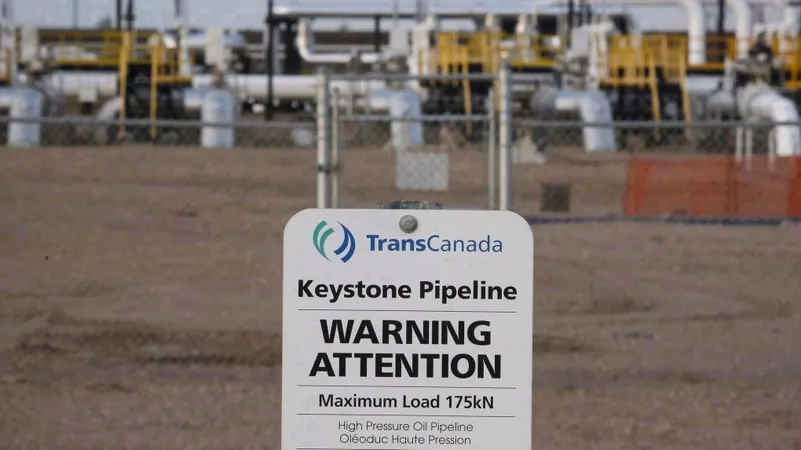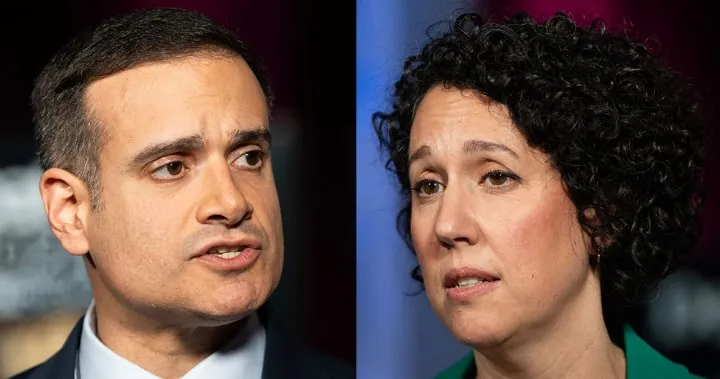
Australia Poised to Enact Pioneering Social Media Ban for Under-16s – Is This the Answer to Online Safety?
2024-11-28
Author: Jacob
Australia's Historic Legislation
In a groundbreaking move that could reshape the digital landscape, the Australian Senate has passed a historic ban on social media usage for children under the age of 16. This legislation, which is set to become the first of its kind globally, aims to hold major platforms accountable and enhance the protection of young users from online threats.
Legislative Details
The Senate voted decisively in favor of the bill, with a tally of 34 to 19. Earlier this week, the House of Representatives overwhelmingly supported the legislation, voting 102 to 13. The law stipulates that platforms like TikTok, Facebook, Instagram, and others could face fines of up to 50 million Australian dollars (approximately $33 million) should they fail to effectively prevent underage accounts from existing on their services.
Concerns and Critiques
Before penalties are enforced, the platforms will have a year to devise strategies for compliance. While the legislation has garnered support from major political parties, it is not without controversy. Critics argue that the ban might inadvertently infringe on user privacy, as platforms would need to verify users' ages without requiring government-issued ID, such as passports or driver's licenses.
Advocacy and Opposition
Many advocates for child welfare and mental health express valid concerns about the unintended consequences of this ban. Senator David Shoebridge from the Greens party articulated these worries, asserting that the legislation could isolate vulnerable children who rely on social media for support and a sense of community, particularly those in rural areas or from marginalized groups, including the LGBTQI community.
Support for the Ban
On the opposing side, Senator Maria Kovacic justified the ban as a necessary measure, highlighting that social media companies have long neglected their responsibility to identify and protect underage users. She emphasized that organizations must take these demands seriously and work towards safeguarding children's safety online.
Parental Perspectives
The bill has received passionate support from parents of children who tragically suffered due to online threats. Sonya Ryan, who lost her 15-year-old daughter to a predator posed as a peer online, hailed the Senate vote as a significant step towards improving child safety in the digital world. Similarly, Wayne Holdsworth, whose son fell victim to an online extortion scheme, expressed profound pride in the legislative progress.
Cautions from Experts
However, not all feedback has been positive. Christopher Stone, executive director of Suicide Prevention Australia, cautioned that the legislation overlooks the potential benefits of social media for youth mental health and connection. He criticized the hasty decision-making process as potentially harmful, suggesting that policymakers need to rely on informed, evidence-based strategies rather than conducting rush jobs ahead of elections.
Industry Concerns
Further complicating the issue, tech companies have voiced concerns regarding the practicality of the law, calling it unworkable and suggesting a delay until a commissioned evaluation of age-assurance technologies is completed. Critics perceive this legislative push as a strategic move before upcoming elections, engaging parents concerned about their children’s social media usage to secure political favor.
Global Implications
As Australia steps boldly into uncharted territory with this regulatory framework, the global community watches closely. Will this initiative genuinely enhance online safety, or could it lead to further isolation for young users navigating the complex terrain of social media? The answers remain to be seen as implementation approaches and discussions continue.









 Brasil (PT)
Brasil (PT)
 Canada (EN)
Canada (EN)
 Chile (ES)
Chile (ES)
 España (ES)
España (ES)
 France (FR)
France (FR)
 Hong Kong (EN)
Hong Kong (EN)
 Italia (IT)
Italia (IT)
 日本 (JA)
日本 (JA)
 Magyarország (HU)
Magyarország (HU)
 Norge (NO)
Norge (NO)
 Polska (PL)
Polska (PL)
 Schweiz (DE)
Schweiz (DE)
 Singapore (EN)
Singapore (EN)
 Sverige (SV)
Sverige (SV)
 Suomi (FI)
Suomi (FI)
 Türkiye (TR)
Türkiye (TR)